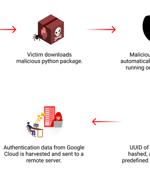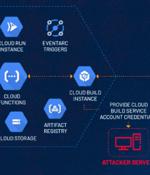Security News

Google Chrome has added app-bound encryption for better cookie protection on Windows systems and improved defenses against information-stealing malware attacks. As Chrome software engineer Will Harris explained in a blog post published today, Chrome currently uses the most robust techniques provided by each operating system to safeguard sensitive data such as cookies and passwords: Keychain services on macOS, kwallet or gnome-libsecret on Linux, and the Data Protection API on Windows.

A new iteration of a sophisticated Android spyware called Mandrake has been discovered in five applications that were available for download from the Google Play Store and remained undetected for two years. A majority of the downloads originated from Canada, Germany, Italy, Mexico, Spain, Peru, and the U.K. "The new samples included new layers of obfuscation and evasion techniques, such as moving malicious functionality to obfuscated native libraries, using certificate pinning for C2 communications, and performing a wide array of tests to check if Mandrake was running on a rooted device or in an emulated environment," researchers Tatyana Shishkova and Igor Golovin said.

A new version of the Android spyware 'Mandrake' has been found in five applications downloaded 32,000 times from Google Play, the platform's official app store. Kaspersky now reports that a new variant of Mandrake that features better obfuscation and evasion sneaked into Google Play through five apps submitted to the store in 2022.

Google celebrated Sysadmin Day last week by apologizing for breaking its password manager for millions of Windows users - just as many Windows admins were still hard at work mitigating the impact of the faulty CrowdStrike update. More than 17 million users might have received the broken update and, as Google put it, "Experienced the issue."

Cirrus is an open-source Python-based tool designed to streamline Google Cloud forensic evidence collection. It can streamline environment access and evidence collection in investigations involving Google Workspace and GCP. The tool simplifies incident response activities and enhances an organization's security posture.

Cybersecurity researchers have discovered a malicious package on the Python Package Index repository that targets Apple macOS systems with the goal of stealing users' Google Cloud credentials from a narrow pool of victims. The package, named "Lr-utils-lib," attracted a total of 59 downloads before it was taken down.

Google has fixed a bug in Chrome's Password Manager that caused user credentials to disappear temporarily for more than 18 hours. In a Google Workspace incident report, the company says the issue affected approximately 2% of all Windows users who had already upgraded to Chrome 127, the browser's latest version.

Cybersecurity researchers have disclosed a privilege escalation vulnerability impacting Google Cloud Platform's Cloud Functions service that an attacker could exploit to access other services and sensitive data in an unauthorized manner. "An attacker could escalate their privileges to the Default Cloud Build Service Account and access numerous services such as Cloud Build, storage, artifact registry and container registry," the exposure management company said in a statement.

Apple last week celebrated a slew of privacy changes coming to its Safari browser and took the time to bash rival Google for its Topics system that serves online ads based on your Chrome history. It's feared netizens could be still be tracked around the web using the Topics API in Chrome, or folks who have tried to hide their identity from advertisers could be rediscovered using the tech.

Google Chrome now warns when downloading risky password-protected files and provides improved alerts with more information about potentially malicious downloaded files. The Chrome browser now also sends suspicious files to the company's servers for a deeper scan for users with Enhanced Protection mode enabled in Safe Browsing, providing extra protection while "Reducing user friction."